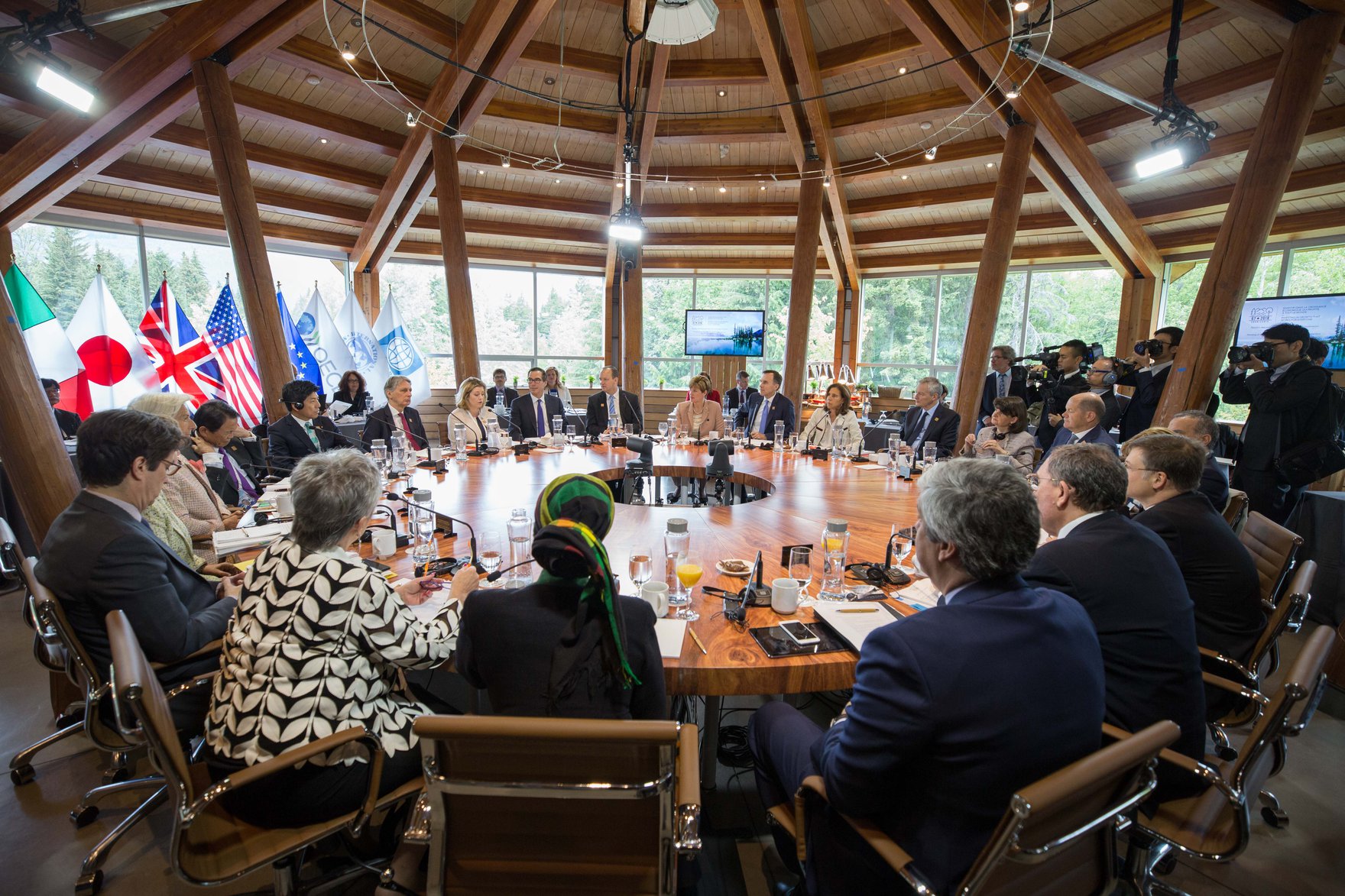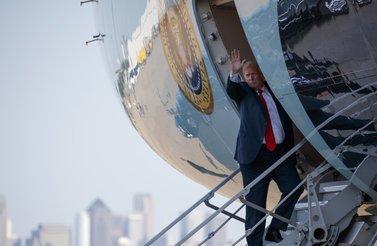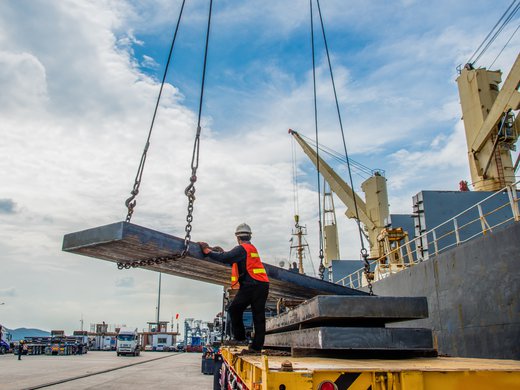Canadian Finance Minister Bill Morneau says he tried.
He knows that his country’s traditional role in the Group of Seven (G7) has been to bridge the differences between the United States and Europe. But in Whistler, British Columbia, last week, there were no connections to be made, as six countries turned on the United States in an extraordinary display of diplomatic anger over President Donald Trump’s trade policies.
“We are all equally frustrated,” Morneau said in an interview on June 2 after chairing meetings with his G7 counterparts for three days in the Coast Mountains.
Surely, Canada hoped for a memorable turn as host of the elite group of democratic powers this year. Prime Minister Justin Trudeau is getting that, but not for the reasons he intended. Trump’s decision to end US aluminum and steel duty exemptions for the European Union and Canada brought immediate threats of retaliation. In his final chair’s message, Morneau asked US Treasury Secretary Steven Mnuchin to communicate the finance ministers’ “unanimous concern and disappointment” to Washington.
Trudeau wanted to convince the G7 to narrow gender gaps and clean up the oceans. He may yet do that, but the Charlevoix summit is now about avoiding a trade war.
“The G7 had its agenda set for it,” said Paul Martin, former Canadian prime minister and finance minister, in an interview on June 4.
Ganging up is rare at the G7. The group has been meeting since the mid-1970s and it generally gets along. After encouraging Russia to join in 1997 — creating the Group of Eight — the original seven members banished Russia in 2014 after its annexation of Crimea.
No one is talking about banishing the Americans, but things aren’t good. French Minister of Economy and Finance Bruno Le Maire described the Whistler meeting as the “G6 plus one.” Morneau’s official summary singled out the United States for criticism, something that is almost never done.
“Concerns were expressed that the tariffs imposed by the United States on its friends and allies, on the grounds of national security, undermine open trade and confidence in the global economy,” the summary said. “Members continue to make progress on behalf of our citizens, but recognize that this collaboration and cooperation has been put at risk by trade actions against other members.”
It’s the rationale for the steel tariffs that has angered the United States’ closest friends.
The Trump administration decided earlier this year that international competition had weakened American metal production to the point that the shrunken domestic industry represented a threat to national security. Exporters were told they could negotiate or face border taxes of 25 percent on steel and 10 percent on aluminum.
Some countries, including South Korea, agreed to limit steel exports. But the United States’ postwar allies protested the suggestion that they were security threats. Japan was immediately lumped in with American adversaries such as China. The European Union and Canada managed to secure a one-month delay. When they refused to submit to Trump’s terms, they were returned to the tariff list. Within hours, Trudeau said Canada would match the US duty-for-duty starting July 1. The European Union said it would respond in a similar fashion.
“A trade war doesn’t help anyone, but we’re a sovereign country and we need to explain to our citizens that we will defend their interests,” Morneau said in the interview. “We need to make it really clear to the United States that we’ve had a great deal of mutual success through trade for generations and they are threatening that. It doesn’t appear there is any other way for us to communicate with clarity and that’s what we are doing.”
The G7 is capable of impressive things. In 1987, it negotiated an agreement to prop up the value of the US dollar; in 2008, it was a meeting of G7 finance ministers and central bank governors that put in motion the international response to the financial crisis.
And although Canada’s economy is by far the smallest among the members, it has managed to assert itself over the years, according to experts.
Former Prime Minister Brian Mulroney encouraged the G7 countries to take a stand against the apartheid regime in South Africa, said Colin Robertson, vice president of the Canadian Global Affairs Institute and a former diplomat. And Martin, when he was finance minister, managed to convince the other G7 ministers to get behind his idea of creating a larger group that included emerging powers such as China and India, clearing a path for the creation of the Group of Twenty. “Canada absolutely belongs,” Martin said.
Trudeau and Morneau can now claim credit for organizing a united front against the Trump administration’s assault on the norms of free trade. That could turn out to be a hollow legacy. The United States has always been the engine of the G7. If Trump feels alienated and turns away, the group could fall apart, leaving global governance less stable.
“I have tried to play the role of a bridge as the country that best understands the United States,” Morneau said. “I expressed as strongly as anyone, maybe even more strongly, how disappointed we are in this action. But I juxtaposed that with, ‘here’s what we can do together.’ It’s important to say this is really inappropriate, but here are the things we can do together.”
One of Trudeau’s challenges in Charlevoix will be keeping Trump engaged. And under the circumstances, any tangible commitment to new joint projects should be judged a success, even if the projects eventually turn into “G6” initiatives.
The Canadian strategy for Charlevoix appears to be to present the US president with a long list of things the G7 could achieve if its core member wasn’t harassing the others with unilateral trade measures.
In Whistler, finance ministers discussed how they would respond to a cyber attack on the international financial system and the extent to which open economies are open to abuse by China’s aggressive state-sponsored companies. Both topics should interest any US president, even a nationalist like Trump.
“We made strides,” Morneau insisted. “That will continue to be our role, to paint a future that is showing the advantages [of cooperation], and use that to convince people that taking actions that aren’t conducive to growth aren’t helpful.”
Will that sort of intervention work with Trump? Who knows? Mnuchin endured such a barrage of criticism in Whistler that Japan’s finance minister said he felt sorry for his American counterpart. Yet the US treasury secretary offered no hint about how his boss might respond.
“He understands. He knows we are frustrated,” Morneau said of Mnuchin. “He didn’t give me a sense of what would happen next. It wouldn’t be appropriate for him to do so and I’m not sure he knows.”




